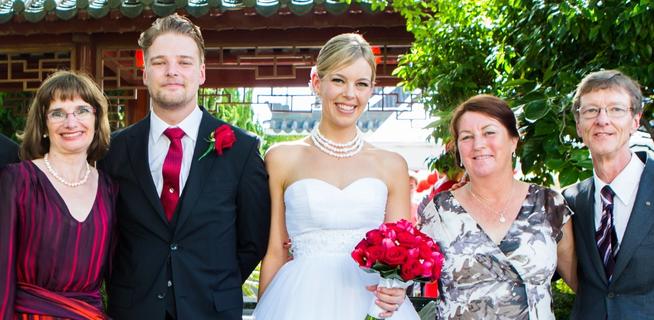Content warning: This article discusses suicide and mental illness, which may be distressing for some readers. In Australia, the crisis support service Lifeline is 13 11 14.
Tamara and Richard Wraith are dedicated to improving outcomes for those affected by mental illness, especially young women.
It’s a mission driven by their personal experience of loss. In April 2022, their daughter Amber, who struggled with complex mental illness for three years, died by suicide.
“Our family had to face the most tragic situation – losing a child,” Tamara recounts. “To lose a child who is a help-seeker is even more soul-destroying.”
Tamara and Richard supported their daughter to seek professional help – an experience that left them feeling failed by the mental health system.
Our experience left us wanting to do what we can to ensure others don’t have to go through the same thing.
“When someone seeks help, especially a young person, there needs to be a door open for them – not a revolving door that pushes them out to nowhere,” says Tamara. “Our experience left us wanting to do what we can to ensure others don’t have to go through the same thing.”

Tamara and Richard at an Amber’s White Light fundraising event.
Turning grief into advocacy
Tamara and Richard are now leading advocates for suicide prevention through Amber’s White Light – a Named Fund at Australian Communities Foundation.
The couple is tackling Australia’s mental health crisis from multiple angles – through personal giving, fundraising and advocacy – to support research into diagnosis and treatment, and help clinicians implement best practices.
Tamara explains three key goals underpin the couple’s advocacy. “Firstly, the time it takes to accurately diagnose mental illness must be shortened. In Amber’s case, we can see in retrospect that she was misdiagnosed.
“Secondly, treatment should be precise and tailored to the individual and their condition. Lastly, care and support need to be compassionate, timely and accessible. Unfortunately, current mental health services fall short of these goals.”
In July 2024, Amber’s White Light launched new Suicide Prevention Guidelines for Emergency Department (EDs) in partnership with the Black Dog Institute and Suicide Prevention Australia.
“With Amber having been turned away from the ED on multiple occasions, we feel strongly about supporting hospitals to implement these guidelines so healthcare workers are equipped to provide the best possible care,” says Richard.
Watch: Tamara and Richard Wraith share their story with the Black Dog Institute.
Amber’s Alert: Improving diagnostic accuracy
After building the Amber’s White Light Fund over the last two years, Tamara and Richard have just made their first grant. Turning their focus to improving diagnosis, the couple has committed $150,000 to Monash University’s HER Centre for an ambitious new research project named in Amber’s honour.
The Amber’s Alert project seeks to develop a toolkit to assist clinicians with accurate diagnosis in the early stages of mental illness.
“There is a lot of foundational research underway globally into biological signs of particular mental illnesses,” says Richard. “But it’s yet to be translated into clinical use.”
“That’s why this research is so important,” adds Tamara. “If clinicians have the tools to accurately differentiate between conditions, this leads to better treatment and care, and will ultimately save lives.”
HER Centre has nearly reached the current funding target for the project with an $82,000 gap remaining. Learn more about the project and contribute here.
—
At Australian Communities Foundation, we can help you establish Named Funds to honour the memory of a loved one. Learn more about Named Funds here or contact us to have a conversation about getting started.
Feature image: Amber (left) with a friend.





